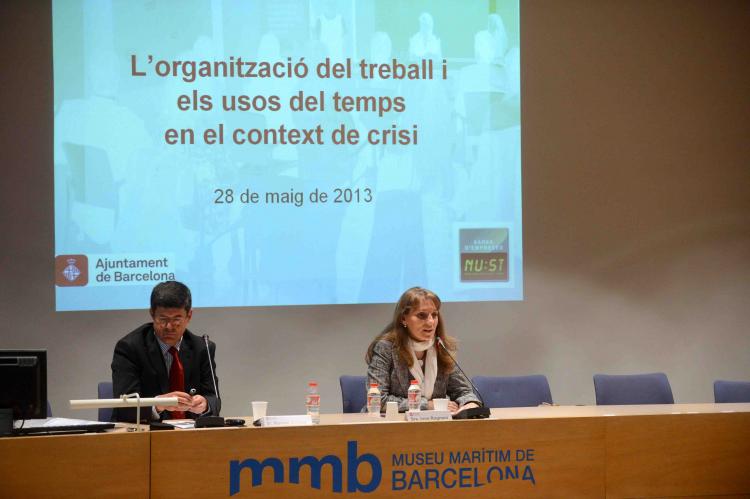The organization of the work and the uses of the time in the crisis context
The Time and Quality of Life Program organized a conference aimed at discussing new forms of work organization and their benefits for business organizations in a crisis environment. In addition to the presentation of the latest Eurofound study on the topic, representatives from companies that shared their time use policies in their organizations participated in the conference.
The conference took place on May 28th in the auditorium of the Maritime Museum and was presented by Irma Rognoni, Councilor for Family, Childhood, Time Use, and Disability of the Barcelona City Council. The interventions were streamed live and can be viewed in the videos along with the speakers' presentations.
Manuel Ortigao, Director of Research at the European Foundation for the Improvement of Living and Working Conditions, opened the conference with the presentation of Eurofound, the foundation formed by governments, trade unions, and employers' organizations, dedicated to conducting and disseminating comparative socio-economic studies with the aim of influencing European public policies. He then presented the study "Work Organization and Innovation" carried out in companies from 13 European Union countries that have managed to maintain or even grow their business by innovating in work organization to make it more interesting and productive for all parties involved. He concluded his intervention by presenting EUWIN, a network of companies, institutions, and individuals with the mission of raising awareness in their environments regarding work innovation and its benefits.
The NUST Business Network, promoted by the Councilorship for Family, Childhood, Time Use, and Disabilities of the Barcelona City Council, was presented by Ana Santín, Operations Director of Blai Limousines. In her intervention, she explained how the network is organized, the services it offers to companies, and the benefits that members gain from the exchange of experiences, workshops, and regular working sessions.
The session concluded with a roundtable discussion moderated by Sara Berbel, responsible for the Social Economy Line of Barcelona Activa, in which representatives from four companies and organizations presented their experiences, followed by a debate with the session attendees. In general terms, the speakers from Hotel Barcelona Princess, ABD Association for Well-being and Development, GAES, and Great Place to Work presented the best practices developed by their companies, such as the shift management at the hotel, the compressed workweek at ABD, the possibility of closing some GAES stores on Saturdays, and finally, Great Place to Work explained the methodology used to advise companies.

